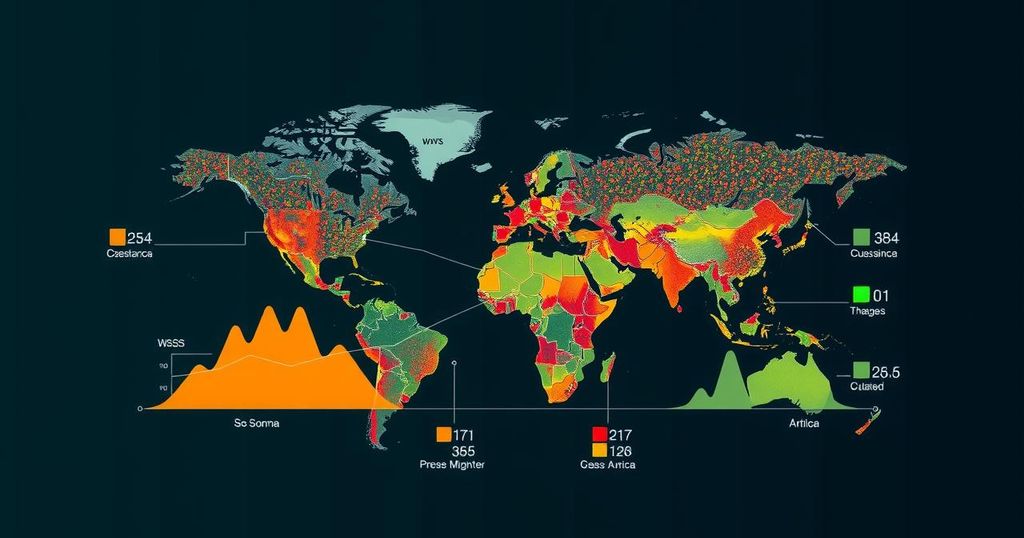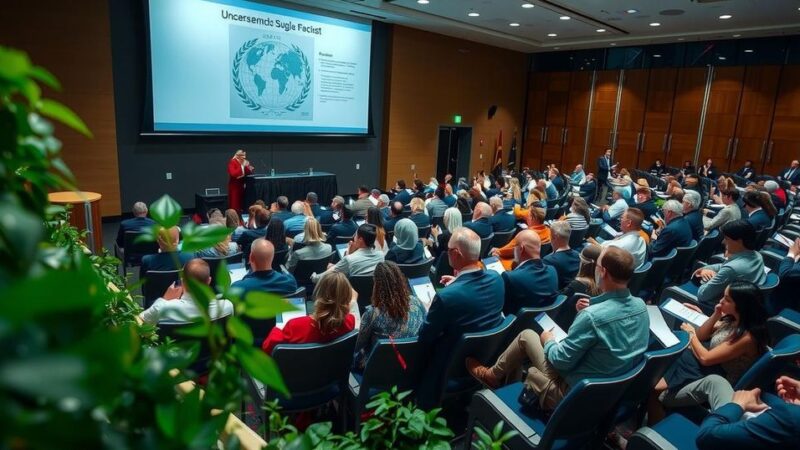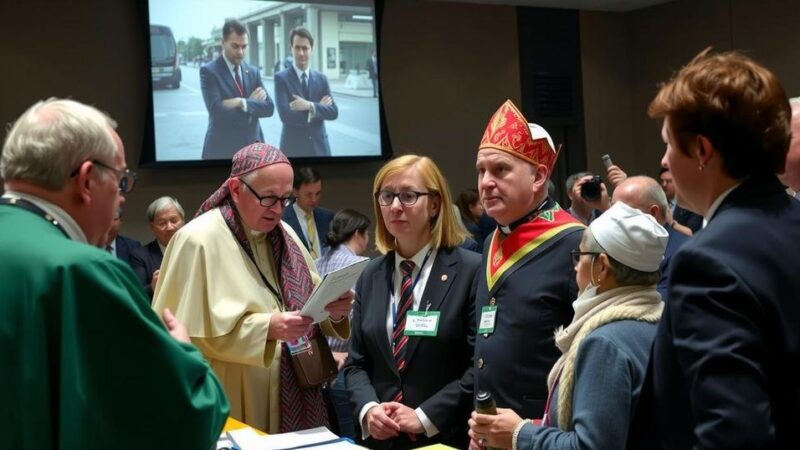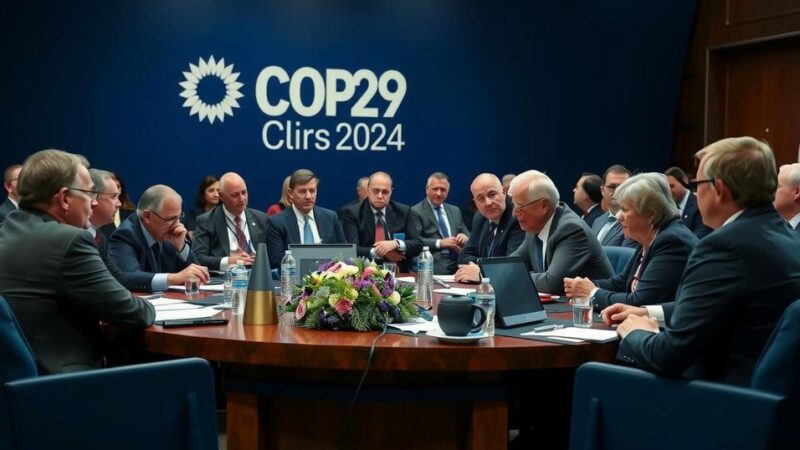The World Meteorological Organization has reported alarming levels of greenhouse gas emissions, notably carbon dioxide, reaching concentrations not seen in millions of years. Severe wildfires have compounded these issues, highlighting the urgent need for action as the upcoming U.N. climate negotiations approach. The implications of rising temperatures and sea levels threaten ecosystems and human lives, necessitating cooperative international responses to mitigate climate change effects.
In light of last year’s devastating wildfires, the accumulation of greenhouse gases in the atmosphere has reached alarming levels, as per the recent report from the World Meteorological Organization (WMO). Notably, the concentration of carbon dioxide now mirrors figures from 2 to 3 million years ago, a period when global temperatures were approximately 3 degrees Celsius higher and sea levels were 10 to 20 meters elevated compared to present standards. The primary contributor to this rise in greenhouse gases is the emission of carbon dioxide from fossil fuels and cement production, which is occurring at a pace that outstrips the Earth’s capacity for absorption via oceans and forests. The residual carbon dioxide persists in the atmosphere for hundreds of years, perpetuating the greenhouse effect that is warming the planet. Ko Barrett, the WMO’s deputy secretary general, emphasized the significance of even minor temperature increases during a press briefing. She noted, “These are more than just statistics. Every fraction of a degree of temperature increase matters.” Consequentially, rising temperatures will exacerbate glacial retreats, accelerate sea-level rises, and heighten ocean heating and acidification, ultimately affecting countless lives, ecosystems, and economies. The upcoming 29th U.N. climate negotiations set to unfold next month are amid these mounting concerns. Hosted by Azerbaijan, a country with a government known for its authoritarian grip and significant dependence on oil and gas exports, the climate talks will address the urgent need for international cooperative action against climate change. At the 2015 climate negotiations, a global consensus was developed amongst approximately 195 nations to limit average temperature rise to 1.5 degrees Celsius above pre-industrial levels. Currently, the atmospheric temperature increase stands at about 1.2 degrees Celsius, with sea levels having risen approximately 24 centimeters since 1880, largely because of relentless fossil fuel emissions. 2023 saw Canada and Australia experience some of the most severe wildfires ever recorded, contributing to persistently high levels of carbon dioxide emissions. Additionally, the WMO warned of a potential decline in carbon absorption by forests, attributed to the transition from a cooler La Niña phase to the warmer El Niño phase, which impacts global weather patterns, thus challenging plant efficiency in carbon absorption. Overall, the WMO reported that the global average concentration of carbon dioxide reached 420 parts per million this year, marking the twelfth consecutive yearly increase of over 2 parts per million. The magnitude of this increase poses an unprecedented challenge, as carbon dioxide is proliferating in the atmosphere at rates unseen during human history. The potential for natural processes, such as wildfires, to exacerbate greenhouse gas emissions is particularly concerning, as warmer environments could lead to more carbon release while simultaneously reducing the capacity for absorption, creating a precarious feedback loop that could significantly worsen climate change. The WMO cautions that these climate feedback mechanisms represent critical challenges for societies worldwide.
The relationship between greenhouse gas emissions and climate change is becoming increasingly dire, particularly in light of recent natural disasters such as wildfires. The World Meteorological Organization has highlighted the current levels of carbon dioxide in the atmosphere, which are unmatched in human history, and described the urgent need to address these emissions in the context of global climate talks. Understanding the implications of rising greenhouse gas levels is critical for developing effective strategies to mitigate climate change impacts on various ecosystems and human populations.
The report from the WMO underscores the urgent need for global action to combat climate change, with rising greenhouse gas levels posing significant risks to the environment and society. As the world prepares for the upcoming U.N. climate negotiations, the focus must remain on reducing emissions and adapting to the climate-related challenges presented by burgeoning temperatures and rising sea levels. Without a concerted international effort, the feedback loops created by these changes will pose increasing threats to the stability of ecosystems and the safety of human populations.
Original Source: www.rfa.org






